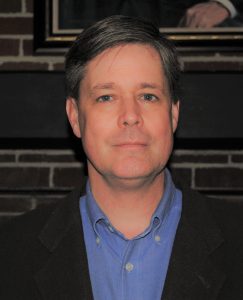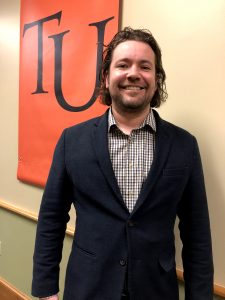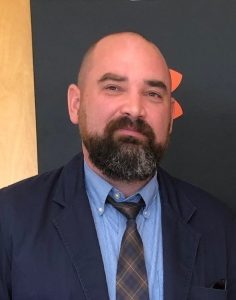GREENEVILLE – Tusculum University recognizes the depth and breadth of Greene County’s history and is proud to have contributed to the community’s development.

Wayne Thomas
This summer, Tusculum faculty members will share the county’s impressive history in a six-week course available to community members and the university’s students. Called “A History of Greene County in Six Objects,” the class will meet at 6:30 p.m. Tuesdays starting June 29. Those who register for the class can attend in person in the Meen Center lecture hall on the Greeneville campus or via live stream.
Community members can participate in the class for free but must register. Current and incoming Tusculum students can take the course and earn a credit hour for free. Each session lasts about an hour.
“Our connection to Greene County runs deep, and we are proud to support our friends and neighbors in the community with this well-designed course,” said Wayne Thomas, dean of the College of Civic and Liberal Arts. “As the first higher education institution in Tennessee, we recognize the value of embracing history and using it to inform the present. Greene County’s history is a wonderful story to share, and our expert faculty members are ready to bring it to life and enhance everyone’s understanding of what makes the community special.”

Dr. Angela Keaton

Dr. Joel Van Amberg
The course will focus on Greene County, but it will also touch on the subjects’ relationship to the nation as a whole, too.
Here is the breakdown of the six sessions:
- June 29 – “History in Stuff: An Introduction to Material Culture” presented by Dr. Angela Keaton, professor of history
- July 6 – No session due to the Independence Day holiday
- July 13 – “The Book ‘Dubiorum Evangelicorum’ Volume 3 by Friderick Spanheim” as part of a presentation on the Colonial Period by Dr. Joel Van Amberg, professor of history and chairman of the History, Museum Studies and Religion Department
- July 20 – “The McClure Desk” as part of a lecture on the Revolution and Early Republic by Dr. Keaton
- July 27 – “Haun Pottery” as part of a presentation about the Civil War and Reconstruction by Dr. Jeffrey Perry, assistant professor of history
- Aug. 3 – “Tobacco Basket” as part of a presentation about the early 20th century by Dr. Peter Noll, associate professor of public history and museum studies
- Aug. 10 – “Cast Iron Kettle” as part of a presentation on the mid-20th century by Dr. Keaton
“My colleagues and I look forward to presenting Greene County’s history in an engaging and innovative way,” Dr. Van Amberg said. “As Dr. Keaton will explain in her introductory lecture, using material objects to interpret the past allows us to understand history in new ways and broadens our vision of what transpired. Greene County has some of the richest history in the state, and Tusculum has been a part of that from the earliest days. We are excited to engage with the community as we explore our collective history and its connection to the larger world.”

Dr. Jeffrey Perry

Dr. Peter Noll
Tusculum launched the six-week free summer course in 2020 with “Pandemic! Perspectives,” which delved into the coronavirus from history, criminal justice, business and economics, nursing, sociology and public health angles. As a follow-up to that course, some participants suggested that Tusculum offer one in the future about Greene County’s history.
To learn more about “A History of Greene County in Six Objects” and register for the course, please visit https://home.tusculum.edu/6-objects. Additional information about the university is available at www.tusculum.edu.


